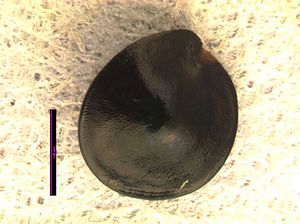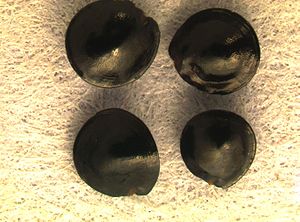Difference between revisions of "Montia linearis"
| Line 42: | Line 42: | ||
==References== | ==References== | ||
| − | + | <References/> | |
| − | + | ||
===Seed=== | ===Seed=== | ||
Revision as of 11:05, 16 April 2012
Montia linearis, or narrow-leaved montia is a flowering plant in the Portulacaceae family. It is sometimes called miner's lettuce, which is a name often applied to many montia genus plants because of their edibility. Synonym: Claytonia linearis
narrow leaved water chickweed, narrowleaf minerslettuce, Montiastrum lineare - source: http://www.calflora.org/cgi-bin/species_query.cgi?where-taxon=Montia+linearis
Contents
Taxonomy
- Plantae – Plants
- Subkingdom - Tracheobionta – Vascular plants
- Superdivision - Spermatophyta – Seed plants
- Division - Magnoliophyta – Flowering plants
- Class - Magnoliopsida – Dicotyledons
- Subclass - Caryophyllidae
- Order - Caryophyllales
- Family - Portulacaceae
- Genus - Montia
- Species - M. linearis
source: http://plants.usda.gov/java/profile?symbol=MOLI4
Description
M. linearis is an herbaceous, low annual that is somewhat succulent. Plants are several branched and between 5 and 20 cm tall. Leaves are alternate and narrow, 1.5 - 5 cm long. Flowers are white, 3 -4 mm long with 2 sepals and 5 petals. Flowers grow in a loose cluster in groups of 5 -12. M. linearis has three segmented capsules that contain shiny, black, disk shapped seeds.
Source: Pojar and Mackinnon pg 132
Bloom Period
April - July
source: http://biology.burkemuseum.org/herbarium/imagecollection.php
Distribution
Narrow - leaved montia grows from British Columbia, east to Saskatchewan, south along the west coast of the United States to Southern California, and is also present in some states in the south eastern United States.
Source: http://plants.usda.gov/java/profile?symbol=MOLI4
Habitat
Moist to dry sites, favoring sandy or rocky soil. Low to middle elavations
Uses
Propagation
Photo Gallery
References
Seed
Montia linearis: MOLI
Seed sample from: 2011
Average Measurement: 2.2 x 2.2 x 1
Measurement Range: L: 2 - 2.5, W: 2 - 2.5, D: 0.9 - 1.1
Features
Shape: Seed lenticular in shape.
Color: Hilum scar is white, surrounded by a ring of brown. Seed is dark red to black.
Surface: Seeds are papillose with some small ridges around the surface edges.
Could be confused with: Caladrinia ciliata
Latitudinal Cross Section: : rhombic ![]()
Longitudinal Cross Section: elliptical ![]()
Basic Explanations and Assumptions:
The dimensions for the seeds are length x width x depth. The location of the hilum is used as the base of the seed, and the length is measured from hilum to the opposite apex. Where a style is present, the length is measured from the hilum to the bottom of the style. Width is measured at a right angle to the length at the widest part. Depth is measured at a right angle to the intersection of height and width lines.
Measurements included are the mean average for each measurement of ten separate seeds.
All measurements in millimeters unless otherwise noted.


